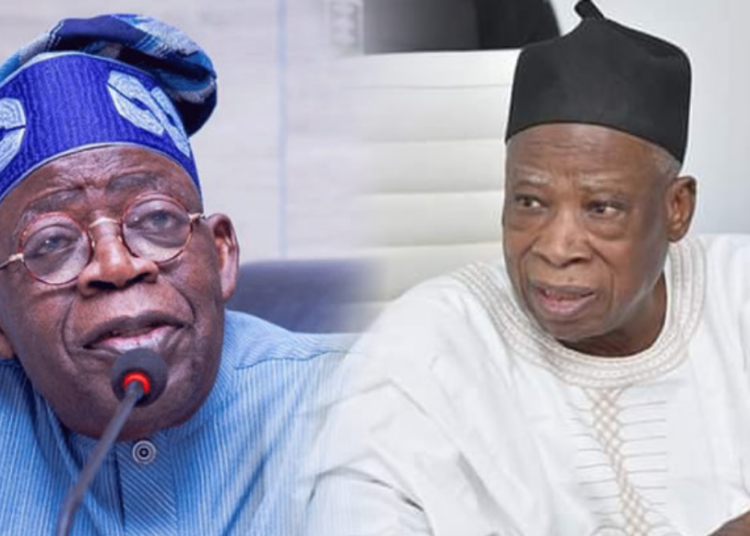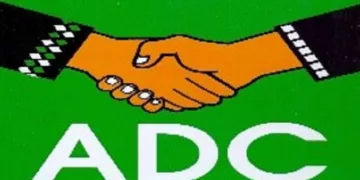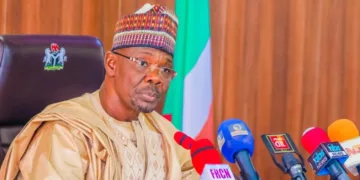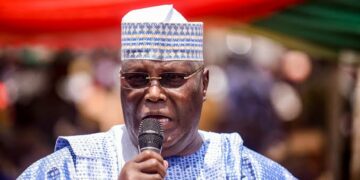Permutations and horse-trading among stakeholders over the presiding officers’ position for the 10th Assembly began last week after the Independent National Electoral Commission (INEC) declared the result of the February 25 National Assembly election in most senatorial districts and federal constituencies.
Interestingly, some ranking lawmakers who were eyeing the seats of Senate President and Speaker of the House of Representatives lost their return bid. But others were lucky to win.
For instance, Kebbi State governor, Abubakar Bagudu Atiku and former governor of Nasarawa State, Tanko Al Makura both of whom were eyeing the Senate President position lost reelection in Kebbi Central and Nasarawa South respectively.
Also, 70-year-old Senator from Kano State South Senatorial District, Kabiru Gaya who has been in the Senate since 2007 lost to Sumaila Kawu of the NNPP. Others like Sam Egwu (Ebonyi North), Michael Ama Nnachi (Ebonyi South), Francis Alimikhena (Edo North); Peter Nwaoboshi (Delta North); Gabriel Suswan (Benue North-East) and Senator Bala Na Allah (Kebbi South) as well as FCT Senator, Philip Aduda who recently replaced Enyinnaya Abaribe as deputy minority leader of Senate when the later left the PDP for the All Progressives Grand Alliance (APGA) could not make it to the 10th Assembly.
In the House of Representatives, some principal officers including the Minority Leader, Ndudi Elumelu; Deputy Majority Leader, Nkiruka Onyejeocha; Minority Whip, Gideon Gwani and the Deputy Minority Whip, Abdulmajid Adekoya, lost at the polls. Also chairman, House Committee on Housing, Mustapha Bala Dawaki who was preparing grounds to run for speakership position also lost at the polls.
While those who lost reelection bids are licking their wounds, their misfortune is an advantage for re-elected lawmakers who now stand a better chance to get leadership positions.
Top on the list of those eyeing the Senate President position is the Chief Whip of the 9th Senate, Senator Orji Uzor Kalu. The seasoned politician is believed to be more favoured being the most formidable figure from APC in the South East and the zone has over the years complained of marginalisation and political neglect.
The South East was not considered for presiding officer position in the 9th Assembly, while the South West zone which produced the Vice President Yemi Osinbajo also produced the Speaker of the House of Representatives. Kalu’s supporters are hoping that the anomaly would-be addressed by yielding the position to him.
Minority leader of the Senate in the 8th Assembly, Senator Goodwill Akpabio from the South-south is also eyeing the seat. Akpabio, according to sources, is relying on his relationship with the president-elect, Ahmed Bola Tinubu to clinch the position.
Other senators-elect including the current president of the Senate, Ahmad Lawan; the chairman of the Senate Committee on Appropriation, Barau Jibrin; former national chairman of the APC, Adams Oshiomhole, former Zamfara State governor, Abdul-Aziz Yari, Ebonyi State governor, Dave Umahi, have started subtle campaigns among their colleagues.
While Oshiomhole and Umahi’s ambitions may not appeal to their colleagues as they are new in the Red Chamber, Lawan, Yari and Barau may be disadvantaged in the race by religious factor, since the president-elect and the vice-president-elect are both Muslims.
In the House of Representatives, the incumbent speaker, Femi Gbajabiamila despite his return to the House for the 6th consecutive tenure is not expected to seek re-election as speaker. Nevertheless, the race for his successor will be more intense.
It would have been a straight win for influential lawmaker Hon. Aliyu Muktar Betara, should the party decide to zone the position to the North East. Betara who is the chairman, House Committee on Appropriations is from the North East (Biu/Bayo/Shani/Kwaya Kusar Federal Constituency of Borno State) the same zone with the vice- president elect.
Despite this, his supporters argued that the Vice-president Yemi Osinbajo and Speaker Femi Gbajabiamila are both from the South West by the party’s arrangement, therefore, the speakership position should now be zoned to the North East where the vice-president-elect comes from.
A former lawmaker from the zone who spoke to Leadership said, “We are talking about equity and fairness, APC zoned the position of Vice-president and Speaker to the South West and we respected it. We also believe that the party will maintain the same pattern and zone speaker to the North East where Senator Kashim Shettima, the vice-president-elect comes from, it is not too much for a zone to have both,” the lawmaker said.
Meanwhile, speculations that the APC would zone the speakership position to the North West is gaining traction and Betara’s men are not having any of it. Some members also argued that chances of the North West has been limited since the House Leader, Alhassan Ado Doguwa who is the major contender from the zone is standing trial for criminal charges.
A lawmaker from the zone (North West) admitted that the two major contenders from Kano State who had commenced mobilisation for the position even before the February 25 election are out of the way.
Doguwa is standing trials in connection with a suspected case of criminal conspiracy, culpable homicide, causing grievous hurt, mischief by fire and inciting disturbance in his Doguwa/Tudunwada federal constituency, while Dawaki lost his reelection bid in his Dawakin Kudu/Warawa constituency.
The source who is familiar with the scheming doubted the possibility of Doguwa joining the race even if he survives the criminal case.
“You know he has always been in the press for the wrong reasons, recently, he reportedly slapped, assaulted the deputy governorship candidate of his party in Kano, shortly afterwards he was said to have attacked a journalist and now this.
“He already has personal issues, even if he is discharged from the courts today, he is not likely to join the race for speaker, his image is tainted,” he said.
Nevertheless, all hope is not lost for the North West as a very close associate of the president-elect from Zamfara State, Hon Aminu Sani Jaji who was chairman House Committee on Internal Affair and Intelligence in the 8th National Assembly, the current chairman, House Committee on Water Resources, Hon Sada Soli from Katsina State as well as the chairman House Committee on Land Transport, Hon Abbas Tajudeen from Kaduna State are frantically making efforts to clinch the seat.
Meanwhile, as the arguments rage and the party designs a zoning arrangement for the positions, party leaders would be expected to gauge the mood of the elected senators and House of Representatives members to avoid rebellion within its ranks, a repeat of what happened in 2015 when the party first gained power at the national scene.
Presiding officers of the 8th National Assembly emerged against the dictates of APC leadership as party members from zones different from the suggestions of the party clinched the positions.
The emergence of Dr Bukola Saraki and president of the Senate and Yakubu Dogara as speaker of the House of Representatives was not without drama.
The senators-elect supporting Saraki, known as “Senators-Elect of Like Minds” boycotted the mock election organised by the party over an alleged predetermined outcome.
Unity Forum insisted on open ballot voting. Senator Ahmed Lawan won the mock Senate President election conducted by senators-elect elected on the APC platform.
Lawan polled 32 votes, while Senator George Akume who got 31 votes, was elected Deputy Senate President in the mock election.
Saraki however went into alliance with senators elected on the platform of the PDP to emerge at the real election. He was elected unanimously by 57 senators present at the session.
The remaining 51 senators were at the International Conference Centre waiting for a truce meeting reportedly called by the leadership of the APC and President Muhammadu Buhari. The APC had 59 senators-elect in the 109-member Senate against the PDP’s 50.
The same was replicated in the House of Representatives as the current speaker, Femi Gbajabiamila won the mock ballot among members-elect with 153 votes, after Dogara pulled out alleging he was not informed of a mock election.
But like Saraki in the Senate, Dogara also emerged as speaker in the real election.
The situation was different in 2019. Despite protests by some APC lawmakers against the party’s preferred candidates, its choices emerged in both chambers.
Senator Lawan, and Hon Gbajabismila who were the party’s adopted candidates in 2015 emerged Senate president and Speaker respectively in 2019.
Lawan polled 79 votes to defeat a former Senate Leader, Senator Ali Ndume who polled 28 votes. In the House, Femi Gbajabiamila polled 283 votes to beat Mr. Mohammed Bago also of the APC who got 76 votes.
Members of the 10th National Assembly would have learnt from the above immediate history and will be more equipped with better strategies to enthrone their choice.
Although, several interests will be at play as the APC prepares to release the zoning arrangement, and the theory of balance could be relative to interpretation of interest groups. It is incumbent on the party to consider all factors, particularly, popularity of the interested parties, so as to avoid a repeat of the 2015 situation.











